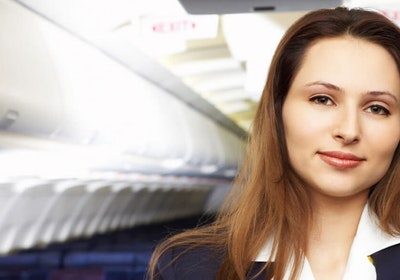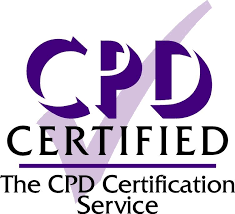Description
Course Breakdown
Module 1: About Passenger Aviation
In this module you will learn about the aviation industry. From its rich history at the beginning of the 20th century through to the emergence of cabin crew members as they are today. You will learn:
- About the financial aspects of the aviation industry and how you contribute to it
- The history of cabin crew members
- What is expected of cabin crew members in terms of safety & security
- The hierarchy of your work place
- Plus much more…
Module 2: Types of Airlines
In this section, you’ll learn the fundamentals of the different types of airlines and familiarise yourself with the types you’ll be approaching for cabin crew jobs. You will learn:
- About charter flights
- About regional flights
- How budget flights stay budget
- Which types of airlines offer the best career opportunities
- Plus much more…
Module 3: Aviation Regulation
Like any industry, the aviation field is regulated. In this module you will learn exactly what regulation ensures that minimum standards are met in terms of fair fare setting, safety, and customer service. All cabin crew members must learn the basics of these regulations.You will learn:
- Which governing bodies regulate British air travel companies
- Which European and international bodies play a role in regulating British companies
- What ATOL is
- Why regulations change and how you should prepare for these changes
- Plus much more…
Module 4: Understanding Aviation Abbreviations
Abbreviations make everybody’s lives easier. This chapter will cover the basics of aviation abbreviations, so you can familiarise yourself with them before an interview. You will learn:
- Why abbreviations are used
- Why it is necessary to familiarise yourself with abbreviations
- Common aviation abbreviations
- Common domestic and International abbreviations
- Plus much more…
Module 5: Geography and Time Zones
In this module, you will learn about the geography of the different regions you will visit, and how each destination affects your role. You will learn:
- How to adapt to different time zones
- The intricate differences between each time zone
- How currencies are calculated
- Currencies and how they apply to your sales targets
- Plus much more…
Module 6: Weather Conditions and Aviation Interruptions
Weather occurs everywhere, and it can affect a cabin crew member’s role be it: volcanic ash clouds or turbulence.
Module 7: Layout of the Commercial Aircraft
Planes are broken down into five basic categories, which all cabin crew members must be familiar with. Familiarising yourself with each aspect of a flight is the easiest way to minimise risks to yourself and others. You will learn:
- How to list the names of the different areas on-board a flight
- To understand who can enter which area
- To understand why there may be restrictions on your movements within certain areas
- Determine the relationship between plane areas and in-flight security
- Plus much more…
Module 8: Passenger Announcements and Communication Systems
In this module you will learn about the importance of passenger announcements be they routine or emergency. You will learn:
- About the different ways of communicating with passengers
- How to communicate with the flight crew
- To know how to adapt your tone of voice to specific situations
- To understand the need to maintain clear communications at all times
- Plus much more…
Module 9: The Galley
In this module you will find out about the galley and discover what equipment you will find there. You will learn:
- How to use the galley for storage
- How to keep the galley safe
- Why you should maintain the galley in a fit state
- How to ensure the galley is used to maintain privacy
- Plus much more…
Module 10: Emergency Exits/Doors
In this chapter you will learn more about the emergency exits and doors. All cabin crew members must be able to open the emergency exits immediately.
Module 11: Cabin Area Hand Luggage
In this chapter, you will learn what passenger hand luggage is. Surprisingly, the definition can vary between airlines. This means cabin crew members need to learn different definitions. You will learn:
- How to recognise when luggage is not appropriate
- How to stow away luggage carefully
- How to follow legal guidelines with regards to hand luggage
- To understand why certain restrictions apply
- Plus much more…
Module 12: Familiarisation of Emergency Equipment for Passenger Safety
In this module you will learn about the many items available on-board an aircraft that you may use to keep passengers safe. . As well as knowing what these items are, it is necessary to understand what they are capable of. You will learn:
- What equipment is available to you to maintain safety
- What a first aid kit is made up of
- Who can use a first aid kit
- The basics of using a slide for emergency evacuations
- Plus much more…
Module 13: Flight Procedures
As much as we would all like to think that we would never face an emergency situation, cabin crew members are quite likely to, at least once during their career. In this module you will learn:
- How to conduct procedures during the course of a normal flight
- How to conduct yourself appropriately during an abnormal situation
- What to do in an emergency situation
- How to Communicate with passengers during every form of procedure
- Plus much more…
Module 14: Emergency Procedures & Stress Management
While most flights go without an emergency, you need to assume that one will arise anyway. This chapter will discuss the types of emergencies you can face and how to deal with them. You will learn:
- What the different types of emergency are
- What ditching is and how to handle it
- How to maintain calm amongst the passengers during an emergency
- How to prevent panicked passengers from making others stressed
- Plus much more…
Module 15: Fire & Team Work in the Event of a Fire
This module covers how to detect fires using signs like smoke, odours, and the appearance of passengers. Such signs can also help you detect potential hazards, like gas and substance leaks. You will learn:
- How a fire arises
- How to recognise a fire using more than just flames
- What the potential fire hazards are
- To know what a fire extinguisher does and the risks associated with using one
- Plus much more…
Module 16: Aviation Security & Health and Safety
As a cabin crew member, one of your primary roles is to ensure that everyone on-board remains safe and secure. Throughout the course of any flight, you need to be able to identify all risks, and you need to know how to resolve problems when they arise.
Module 17: Medical & First Aid
Cabin crew members are required to hold a first aid certificate, as they are the first responders in the event of passengers becoming ill during the flight.
Module 18 : Cabin Crew Uniform & Personal Grooming
All cabin crew members must look presentable. Not only does this ensure passengers feel at ease while flying, it makes sure the company you work for is presented well at all times. You will learn:
- How to select appropriate uniform accessories
- How to wear your uniform
- How to maintain your personal appearance
- How to keep your uniform up to date
- Plus much more…
Module 19: Fatigue Risk Management
There is a risk that you will become fatigued as a cabin crew member. This module will help you discover techniques to manage and prevent this from happening. You will learn:
- How to identify that you are fatigued
- How to manage sleep cycles
- To adapt your lifestyle to prevent fatigue
- To make sure you eat the right snacks on-board
- Plus much more…
Module 20: Crew Resource Management
Every airline will have its own Crew Resource Management (CRM) Initiatives as part of their airline policy. In this module you will learn:
- What crew resource management is
- How CRM initiatives promote the safe operation of flights
- How past incidents are used to help crews learn from
- Communication techniques
- Plus much more…
Discounts
For multiple purchase discounts or to find out if discounts are available on mixed course purchases please phone a customer advisor on 0844 854 9218. Discounts are calculated during the checkout process.
Payment Options
The most straight forward method of payment is to select the number of users you require and add the product to your shopping cart by selecting Add to Cart. You will then be able to make payment using most credit and debit cards or a Paypal account. If you would like to pay by BACs transfer or by invoice please contact a customer advisor on 0844 854 9218 or email enquiries@elearningmarketplace.co.uk.







 UK: 0844 854 9218 | International: +44 (0)1488 580017
UK: 0844 854 9218 | International: +44 (0)1488 580017





















